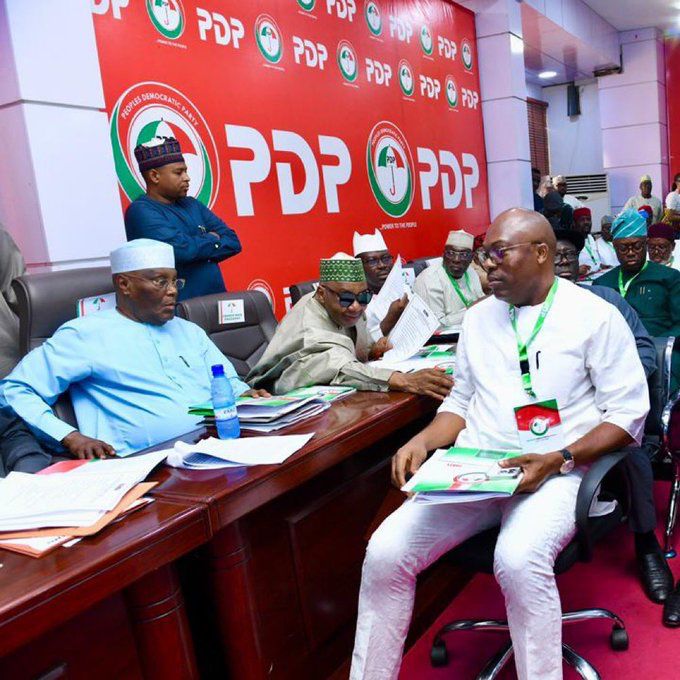By Eric Elezuo
She is fearless, she is resolute, she is a fighter for justice, she is MagnaFaith Krimi, a Washington DC based Nigerian journalist, who has taken it upon herself to see that justice is served for victims of extra-judicial killings and mass murders, and not forgetting the down trodden in the society. MagnaFaith lives in Washington, DC, United States of America, where she runs a media outfit and advocates for women and the girl-child towards providing humanitarian services to victims displaced by unrest.
A well read journalist with proven proficiency and professionalism, MagnaFaith, as she is simply called, has been defined in various places as courageous, fair and objective, and merited the privilege of heading the Nigerian Union of Journalism (NUJ) in America as the president, which presented her an opportunity and platform to do more in the service of humanity.

As a community builder with fairness, balance and an unrepentant change agent, MagnaFaith has taken the inclusion of women in leadership a nudge further, opening doors for greater development and initiatives. Not only that, she has been in the forefront of providing succour to not a few who has been devastated by acts of terrorism and man’s inhumanity to man.
Filled with milk of human sympathy and fearlessness, she visited Kaduna State communities in the wake of gruesome killings and banditry attacks ravaging the areas, for a first hand report of events. She had stated at the end of her visit that: “the level of destruction in these communities are very alarming, requiring huge funding to fix.”
As her visit coincided with the kidnap of over 200 school children, most of whom were females, MagnaFaith chose to amplify the voices of the girls and their families.
While she mourned the carnage that followed the Adara community in Kajuru Local Government Area of Kaduna massacre, the woman could not help but bring the plight of women and children to the fore.
She emotionally told newsmen that the worst hit were women and children who have been exposed to various forms of diseases, and are traumatized with no healthcare programme available for their wellbeing.
She was bold to highlight that the area had “experienced brutal ethnic cleansing progressing apace in recent months. MagnaFaith has mentioned. About 500 houses were destroyed by gunmen following recent attacks in the area, these houses need to be rebuilt to give any hope and provide relief to the ordinary citizens of the community.”
she took time out as well to visit the site where one Rev. Father Joseph “Big Joe” Kwasau of Kasuwan Magani in Kaduna State escaped assasination. His guard, Samuel Jerome, was reportedly not lucky as he fell to the bullets of the gunmen
Hear her: “I was emotional as I looked upon the parish that stood before the gate where local residents firing hunting rifles caused the gunmen to retreat, saving Father Kwasau. It was surreal, I thought it could happen while I am inspecting the site and snapped out of my thoughts”.
The mother of three did not stop there, but also paid a visit to the Engravers College, where six students and two staff members were kidnapped. She spent time with the parents of the students and did not leave Nigeria until the students and staff were released to their families. That was how concerned the journalist was, and still is.
Krimi is a critical thinker recognized across international borders just as she is a well-rounded influence strategist, whose work as a journalist focused more on terrorism, while providing mentorship and training for women and the girl child in Africa and in the diaspora.
It is her belief that Nigerian journalists are behind the pack in telling stories of the mass murders ongoing as she acknowledged in one of her write up this: “These issue amongst others create a narrative among Nigerians in Diaspora, that Nigerian journos are among the timidest and obsequious in the world.”

She had therefore, called on the Nigerian government, officials at all levels, well-meaning Nigerians, including NGOs and international bodies to come to the aid of the innocent and unarmed civilians of Kaduna and help rebuild their lives so they could begin building what is left of their ancestral homes.
She also acknowledged the efforts made by some NGO’s, government agencies and institutions for the relief materials provided so far. She is of the opinion that more should be done to help women and children just as the senseless attacks are stopped altogether.
She said:
“Like I always say, once you have heard these stories, you do not forget. You can either choose to be silent just like most everybody else, but more and more you think, “Silence isn’t golden” for the unarmed and innocent women and children in harm’s way.”
But she is still hopeful of a turnaround story being told in and about Nigeria, and notes as follows:
“Thank God Nigeria produced some great truth-tellers. Yes, there are truth-tellers, and that is maybe a sign of a political awakening in my beloved country. But my beloved country has a problem with telling the truth about itself. It is a good country. Very good. So good, it should be better.”

MagnaFaith’s zeal and duty bound efforts to continue to see that justice is served to as many that deserves it will continue to reverberate and echo in the minds of all and sundry, prompting everyone therefore to action.
Her humanitarian efforts have brought her face to face with world leaders, especially Nigerians, and they acknowledge and applaud all her activities.

 News6 years ago
News6 years ago
 Featured6 years ago
Featured6 years ago
 Boss Picks6 years ago
Boss Picks6 years ago
 Headline6 years ago
Headline6 years ago
 Headline6 years ago
Headline6 years ago
 Headline5 years ago
Headline5 years ago
 Headline6 years ago
Headline6 years ago
 Headline6 years ago
Headline6 years ago




















